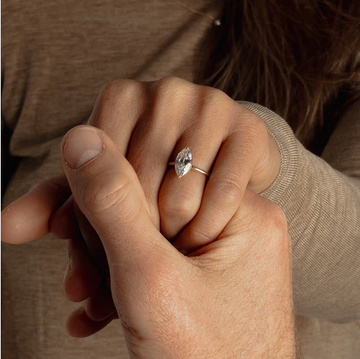We all love a good cleaning hack, and vinegar – the trusty staple in many kitchens – is often touted as a natural, cost-effective solution for a variety of household chores. But can you add “jewelry cleaner” to that list? The internet is buzzing with opinions, but before you reach for the bottle, let’s dissect the use of vinegar for cleaning your precious pieces.
The Allure of Vinegar: Why the Appeal?
Vinegar, specifically white distilled vinegar, has gained popularity for its cleaning prowess due to its acidic nature. It can cut through grease, dissolve mineral deposits, and even help remove tarnish. It’s natural, affordable, and readily available – making it a tempting choice for DIY jewelry cleaning.
The Verdict: Proceed with Caution (and Know Your Jewelry!)
While vinegar might seem like a convenient solution, it’s not a one-size-fits-all answer for jewelry cleaning. Here’s why you need to tread carefully:
- Acidity: The Double-Edged Sword: While the acidity of vinegar can help dissolve certain build-ups, it can also react with and potentially damage certain metals and gemstones.
-
Not For Everything: Vinegar is generally considered safe for gold and platinum, but even with these metals, it’s best used with caution. However, avoid using vinegar on delicate gemstones like:
- Pearls and Opals: These gems are porous and can be easily damaged by the acid. Vinegar can dull their luster and even cause permanent damage.
- Emeralds: May be treated with oils or resins that vinegar could remove.
- Other Delicate or Porous Gemstones: Amethysts, turquoise, and other softer stones should also be avoided.
- The “Tarnish” Question: Vinegar can help remove tarnish from silver. However, the process can be tricky, and you’ll need to monitor your jewelry closely to avoid prolonged exposure.

Vinegar for Cleaning: Use These Guidelines if You Choose To
If, after careful consideration, you decide to experiment with vinegar cleaning, follow these guidelines:
- Dilution is Key: Always dilute white distilled vinegar with water. A common ratio is one part vinegar to one part water.
- Short Soaks Only: Never soak your jewelry in vinegar for extended periods. A few minutes is typically sufficient.
- Gentle is Best: Use a soft-bristled toothbrush to gently scrub your jewelry.
- Rinse Thoroughly: Rinse your jewelry very thoroughly with clean, lukewarm water after cleaning.
- Dry Carefully: Pat dry your jewelry with a soft, lint-free cloth.
- Test in a Hidden Area: Before cleaning an entire piece, test the vinegar solution on a small, inconspicuous area of the jewelry to ensure it doesn’t cause any discoloration or damage.
Alternatives to Vinegar:
If you’re hesitant about using vinegar, which is understandable, here are some safer and more effective alternatives:
- Mild Dish Soap and Warm Water: This is the most common and safest method for most types of jewelry, including diamonds, gold, and platinum.
- Commercial Jewelry Cleaners: Specially formulated jewelry cleaners are available for various materials and are often the safest and most effective option.
- Professional Cleaning: For valuable or delicate pieces, professional cleaning is always the best choice.
The Bottom Line:
Vinegar can be a cleaning agent for some types of jewelry, but it’s essential to proceed with caution and understand the risks. Always prioritize the safety of your precious pieces and, when in doubt, opt for a gentler cleaning method or consult with a professional jeweler. Remember, the goal is to maintain the beauty and longevity of your jewelry, not to risk damaging it in the process!





